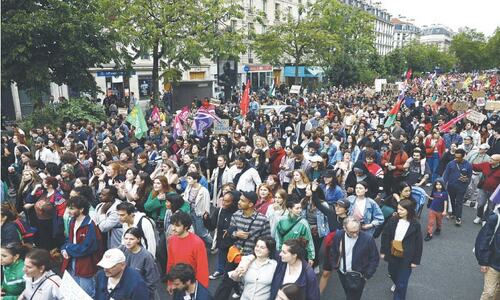JOHANNESBURG: The backlash over South African President Thabo Mbeki’s decision to sack his popular leftist deputy will slow crucial labour reform but not derail the government’s centrist economic policies, analysts say.
The dismissal of Jacob Zuma last month after he was implicated in a corruption scandal exposed deep rifts in the ruling African National Congress (ANC) at a weekend policy meeting, fanning jitters in local markets on Monday.
The furore over the sacking — which investors saw as an example of good governance — has been blamed for the rejection of proposals to relax rigid labour laws by the ANC’s second highest decision-making body.
But analysts said on Monday this did not mean the government would be forced to abandon strategies that have spurred growth in the continent’s biggest economy, reduced its budget deficits to impressively low levels and fostered a booming stock market.
“My sense is that cool heads will prevail and that rational and sound economic logic will dictate the direction of policy,” Standard Bank group economist Goolam Ballim told Reuters.
A policy document rejected by the ANC’s general national council (GNC) aimed to address some of the rigidities in South Africa’s labour market, which business leaders say are partly to blame for an official jobless rate of 26 per cent.
Drawn up by Deputy Finance Minister Jabu Moleketi, the review included proposals that would have made it easier for small businesses to hire and fire employees, suspended minimum wages in some sectors and limited job security for youths.
“It was emotion rather than reason which clouded the labour market proposals — the Zuma issue was behind it,” said Mandla Maleka, economist at state power utility Eskom.
“Given time, perhaps in a year or two, it will subside and they’ll start to apply their minds and consider the proposals.”
Reducing unemployment is seen as vital to South Africa’s long-term stability, given glaring income disparities between the black majority and white minority and one of the world’s highest rates of violent crime.
The ANC has vowed to halve the unemployment rate by 2014 and spend 180 billion rand ($26 billion) on infrastructure over the next five years to boost growth to levels that will create more jobs.—Reuters











































Dear visitor, the comments section is undergoing an overhaul and will return soon.